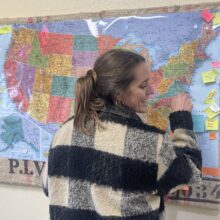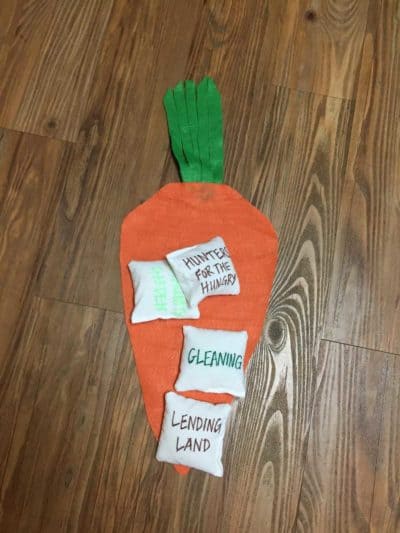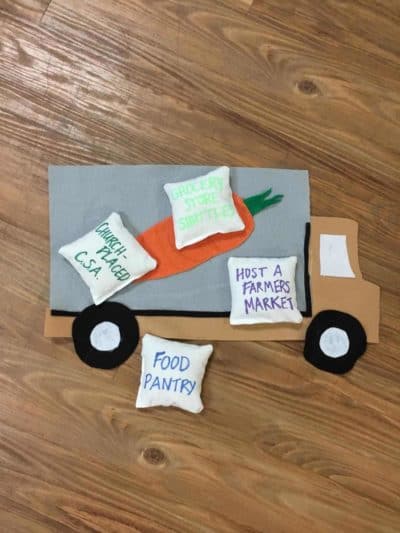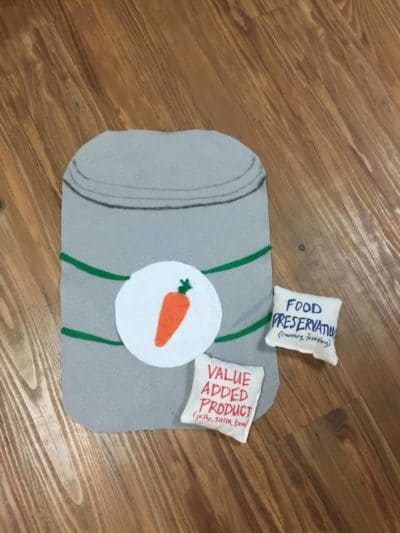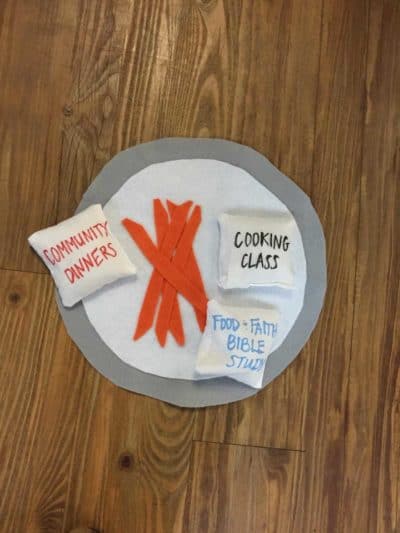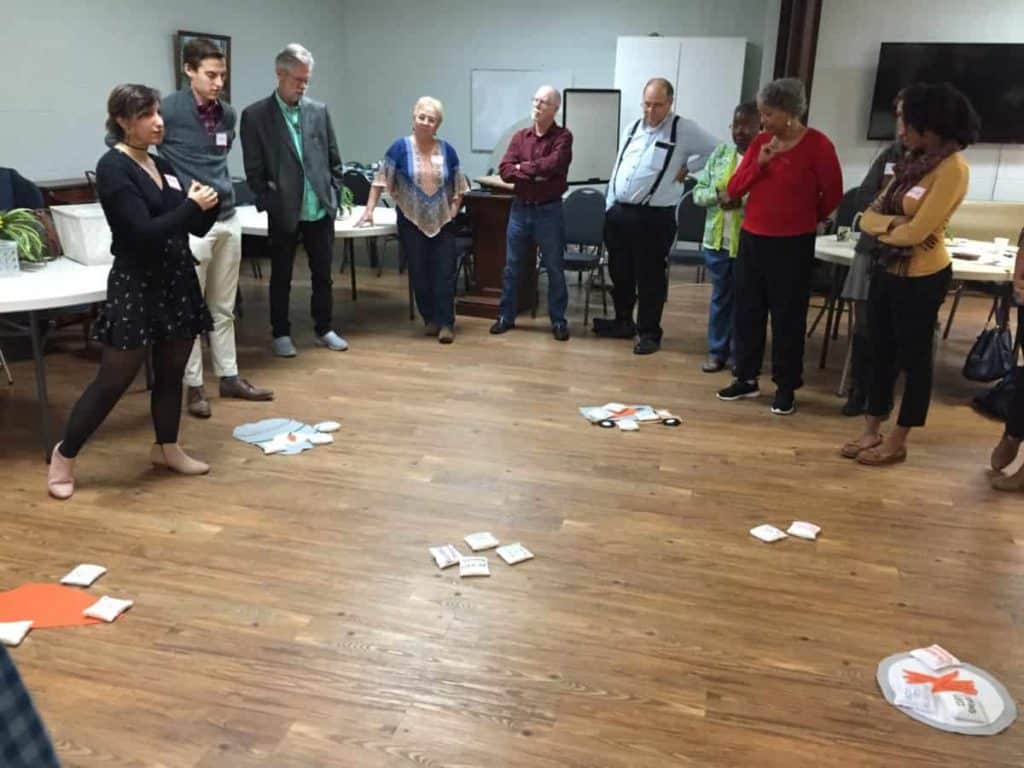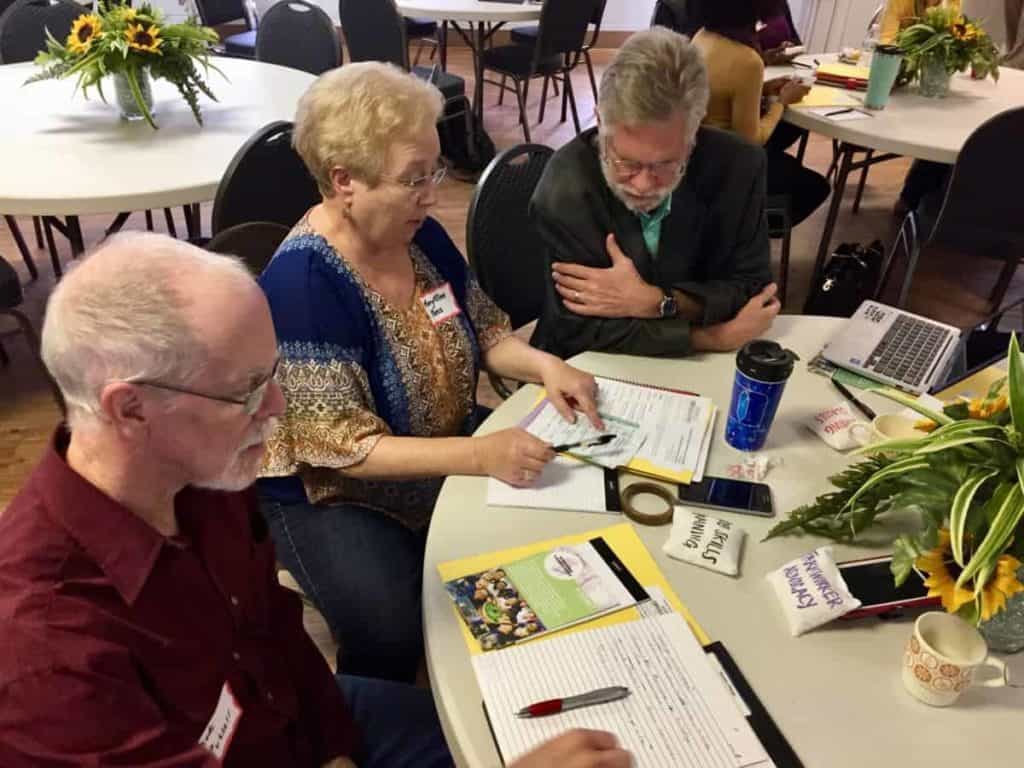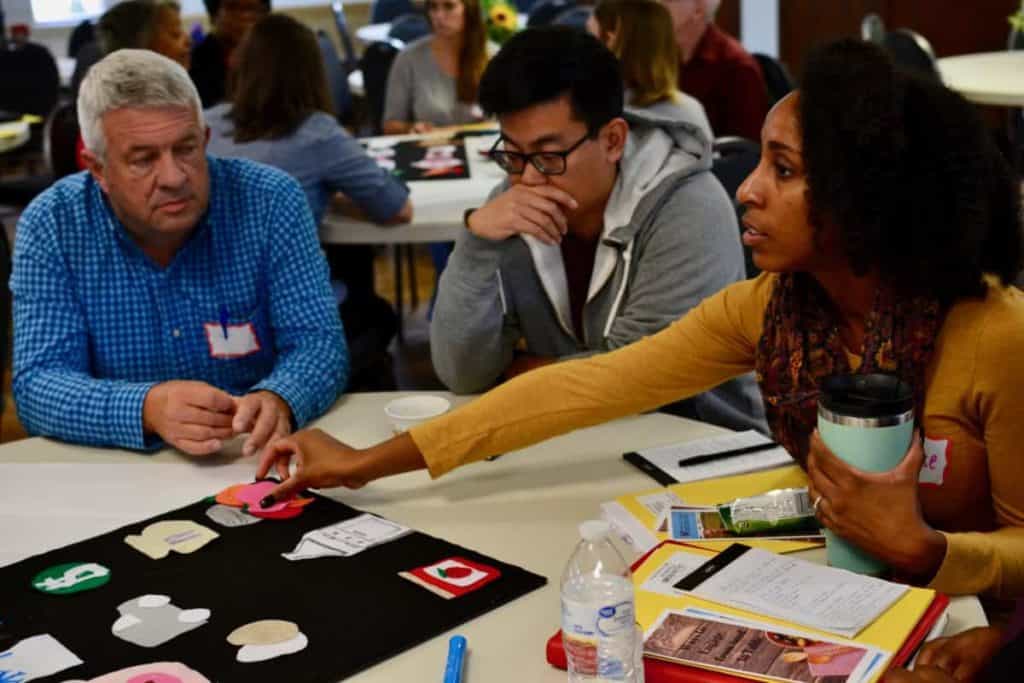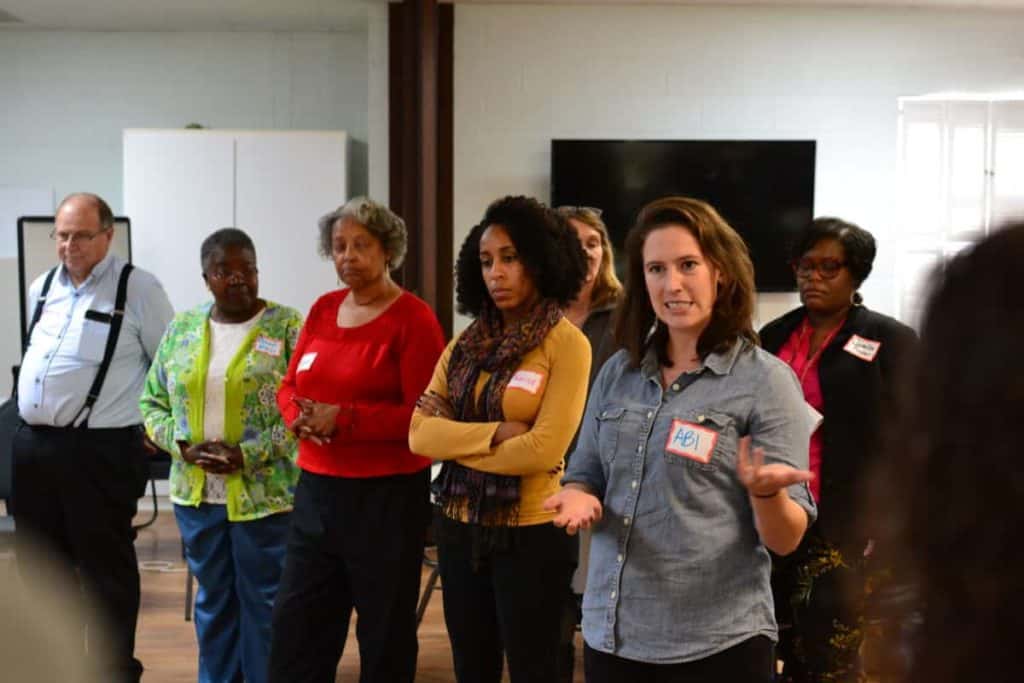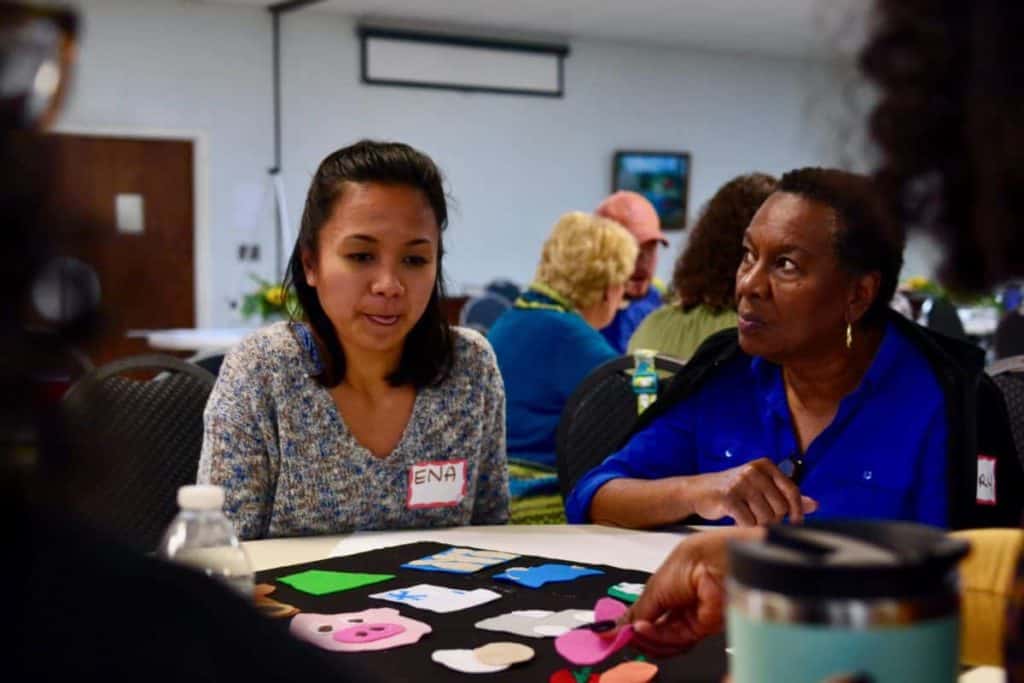“What is your favorite food memory?”
Justine Post, the Faith and Food Coordinator at Resourceful Communities, posed this question to attendees at the event, From Seed to Table: Food in Your Community, in Wilson last week. Participants went around their respective tables and spoke fondly of frying squash with ten siblings, shucking silver queen corn with grandparents, and picking pecans in their youth. It was an icebreaker fit for the day, where participants representing churches, faith-based organizations, and community groups from around the state gathered to discover how they could positively engage in their local food system.
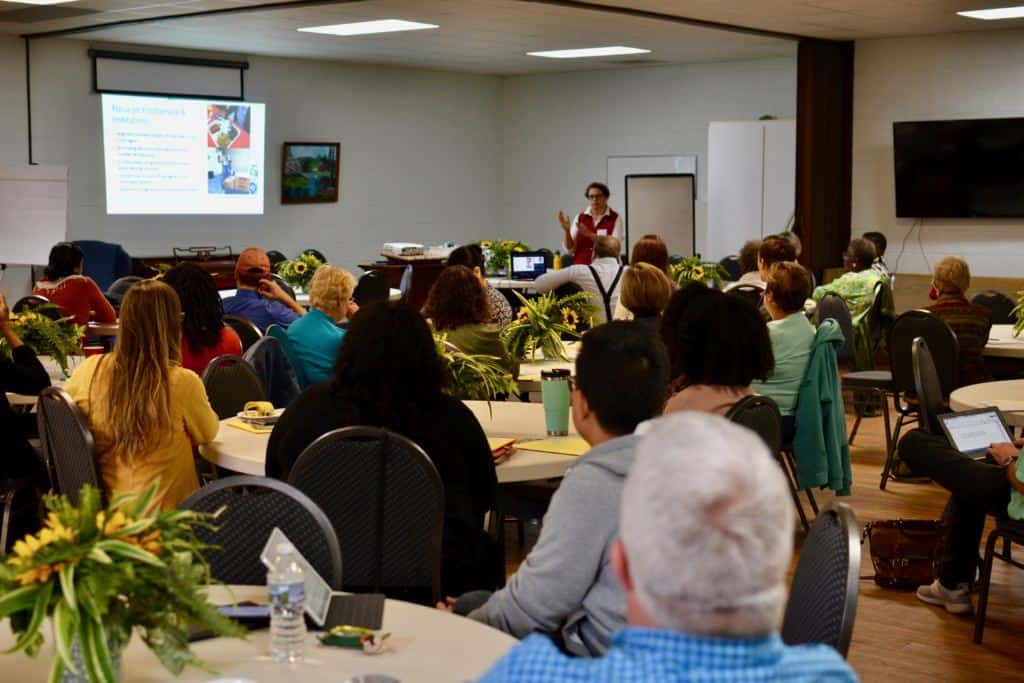

Resourceful Communities is an initiative of The Conservation Fund looking to create opportunities for those in rural areas while preserving the landscape, lifting people out of poverty, and celebrating each community’s special culture. They focus on a “triple-bottom line approach,” which is to impact economic, environmental, and social justice benefits for all people.
What does social justice have to do with food? Community Food Coordinator Olivia Percoro defines the term food justice as, “Looking at social justice through the lens of food.” Looking at the inequities of our food system, food justice challenges the consumer to think outside of their grocery store habits.
Before buying, ask yourself, “Does this support local growers? Does this create economic opportunities for the people in my area? Am I helping reduce barriers for those who are unable to access healthy food?” Resourceful Communities is challenging people to think about the larger picture of how their buying patterns impact the food system as a whole.
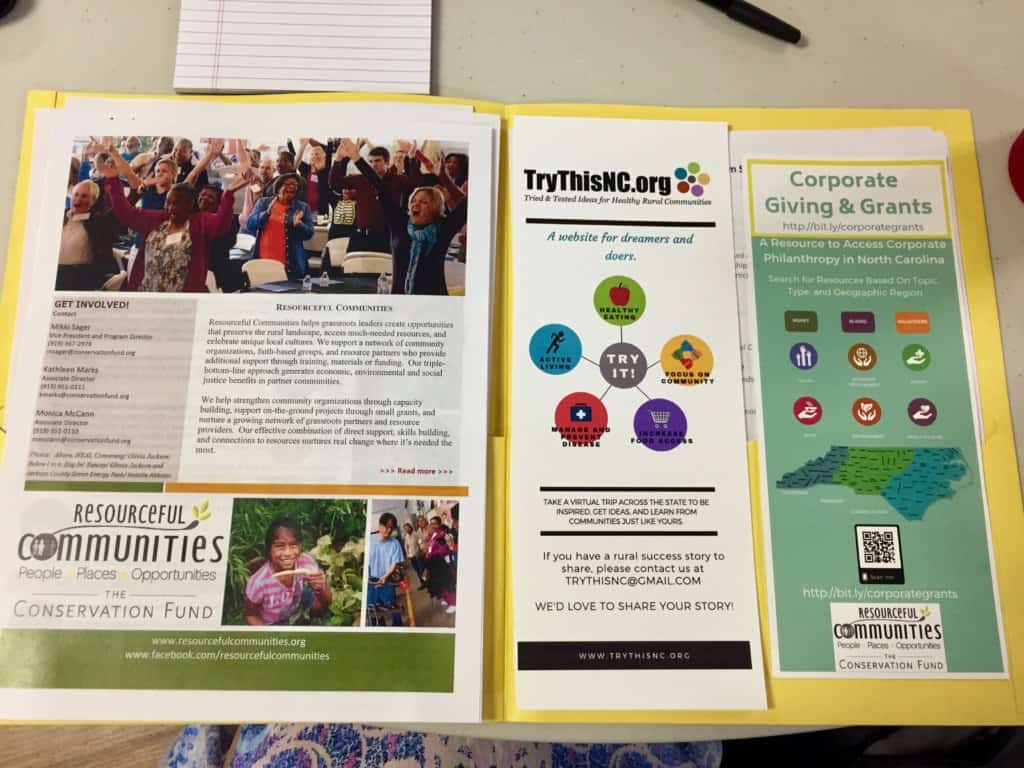

From seed to compost bin
Encouraging the group to think about the food system, attendees were given bean bags with phrases such as job skills training, canning classes, or farm worker advocacy and asked to place them along the cycle of food. The exercise got people thinking creatively and educated participants on stages in the cycle of which they were unaware.
Stewardship and the food system
Food systems matter because they are an “efficient way of getting to that triple bottom line,” said Carla Norwood of Working Landscapes in Warren County. According to Norwood, “Economic vitality, improving health and community relationships, and doing good by our land,” are all byproducts of creating a healthy local food system.
From the beginning, Working Landscapes has centered itself on the idea of helping connect farmers to consumers in creative ways. They have been flexible over the years, creating multiple initiatives to meet community needs. What’s Growing On is an education program aiming to highlight regional produce in creative and interactive ways. Instead of farm-to-table, the program created farm-to-school. Programming includes:
“Cafeteria events and displays: taste tests in cafeterias encourage kids to try the harvest of the month, while colorful posters feature a different local vegetable or fruit each month.
Classroom and garden activities: Core Curriculum-integrated elementary grade lesson plans and school garden activities make it easy for teachers to incorporate local produce and food systems concepts into instruction.
Training: Working Landscapes staff members provide customized farm-to-school training for child nutrition personnel, teachers, and volunteers, enabling them to become What’s Growing On ambassadors in their own schools.”
Over time, the hope is students have a better understanding of regional foods and an increased awareness of the food economy, all while having fun and experimenting with local produce. Norwood believes churches can be key partners in building connections to improve the livelihood of farmers, communities, and the land they both inhabit.
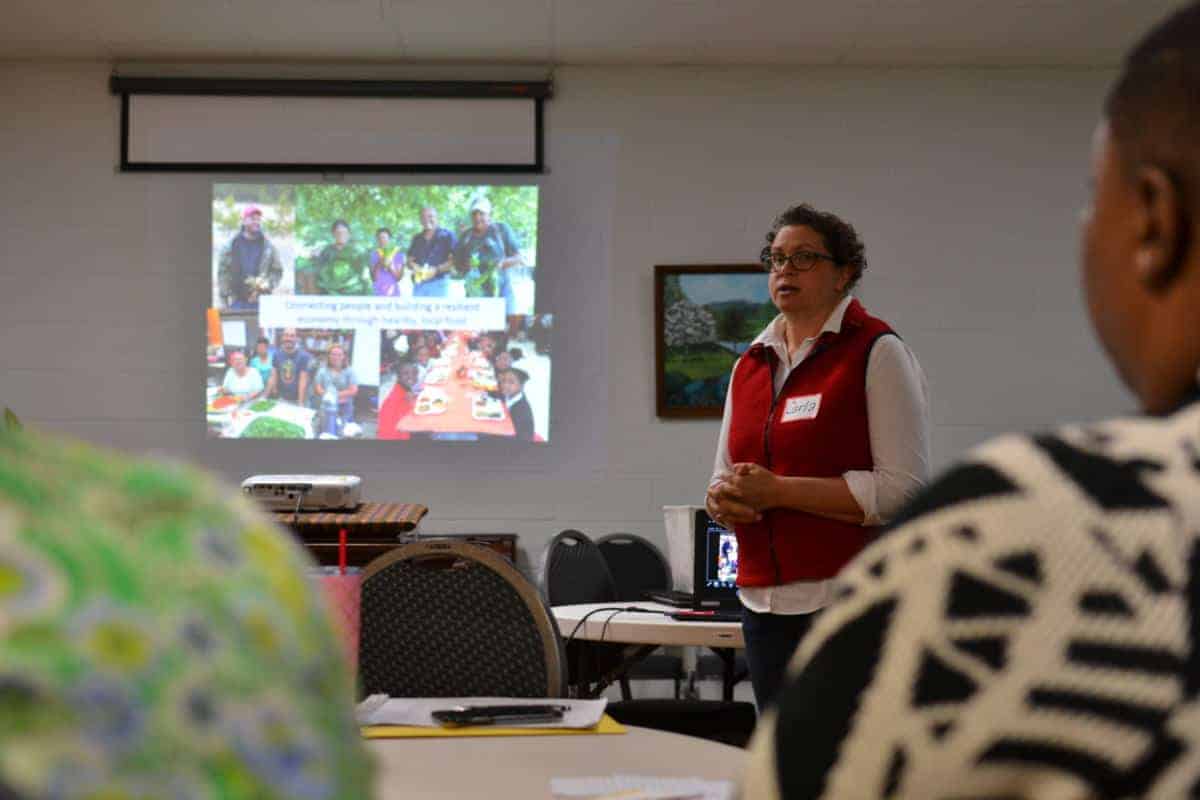

Throughout the day, other Resourceful Community partners shared stories of food system success. A key component for each organization was the willingness to look at the food needs of the community first and develop the program around those. Whether it is hosting a food pantry at church, leading programs to collect leftover fruits and vegetables in fields, or building the necessary infrastructure to help growers reach new markets, participants were willing to look at creative ways to serve the people of their community. As Norwood said at the beginning of her presentation, the best way to think of this work is stewardship: “We want to take good care of the places and the people in them.”
